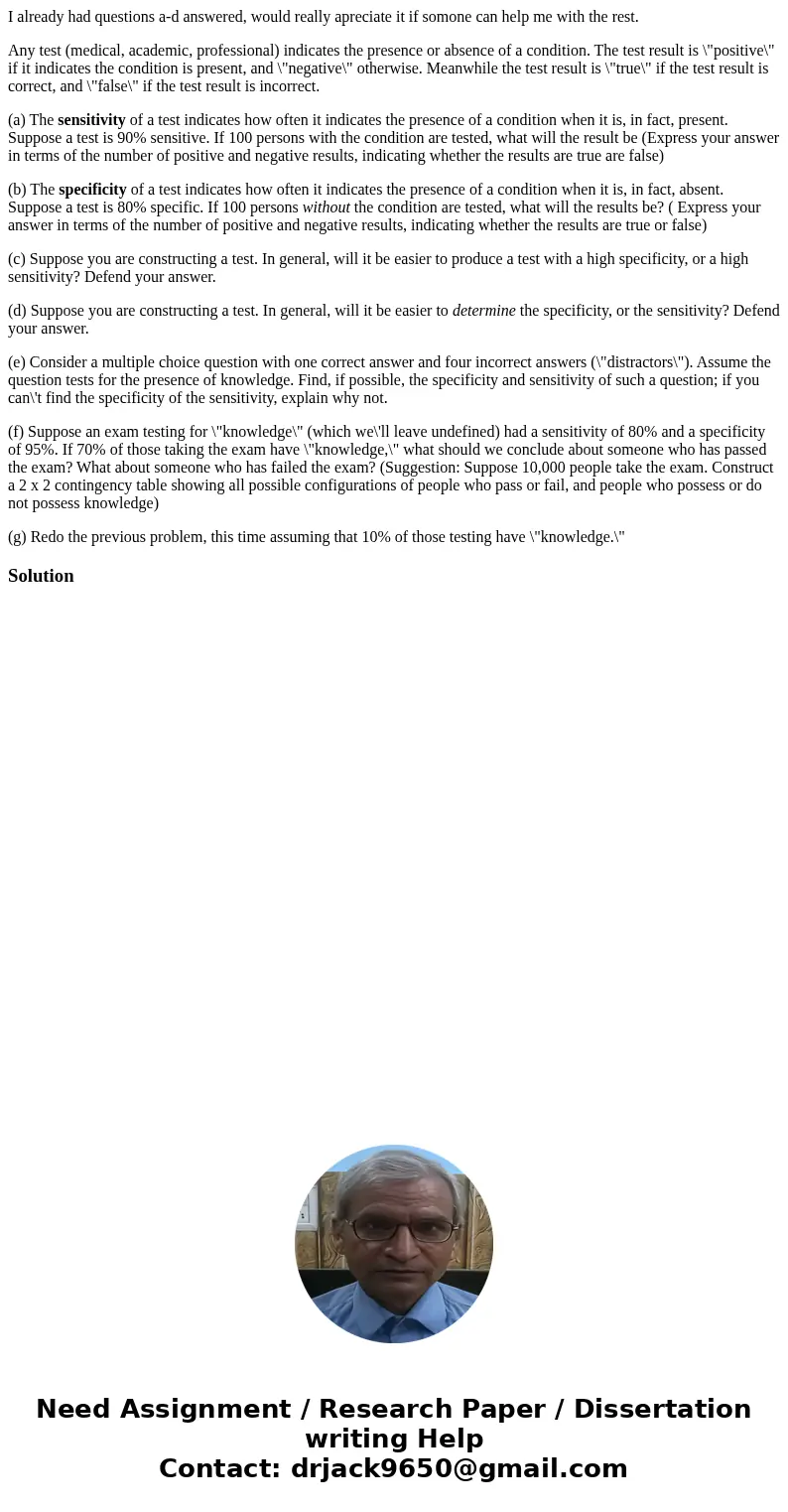I already had questions ad answered would really apreciate i
I already had questions a-d answered, would really apreciate it if somone can help me with the rest.
Any test (medical, academic, professional) indicates the presence or absence of a condition. The test result is \"positive\" if it indicates the condition is present, and \"negative\" otherwise. Meanwhile the test result is \"true\" if the test result is correct, and \"false\" if the test result is incorrect.
(a) The sensitivity of a test indicates how often it indicates the presence of a condition when it is, in fact, present. Suppose a test is 90% sensitive. If 100 persons with the condition are tested, what will the result be (Express your answer in terms of the number of positive and negative results, indicating whether the results are true are false)
(b) The specificity of a test indicates how often it indicates the presence of a condition when it is, in fact, absent. Suppose a test is 80% specific. If 100 persons without the condition are tested, what will the results be? ( Express your answer in terms of the number of positive and negative results, indicating whether the results are true or false)
(c) Suppose you are constructing a test. In general, will it be easier to produce a test with a high specificity, or a high sensitivity? Defend your answer.
(d) Suppose you are constructing a test. In general, will it be easier to determine the specificity, or the sensitivity? Defend your answer.
(e) Consider a multiple choice question with one correct answer and four incorrect answers (\"distractors\"). Assume the question tests for the presence of knowledge. Find, if possible, the specificity and sensitivity of such a question; if you can\'t find the specificity of the sensitivity, explain why not.
(f) Suppose an exam testing for \"knowledge\" (which we\'ll leave undefined) had a sensitivity of 80% and a specificity of 95%. If 70% of those taking the exam have \"knowledge,\" what should we conclude about someone who has passed the exam? What about someone who has failed the exam? (Suggestion: Suppose 10,000 people take the exam. Construct a 2 x 2 contingency table showing all possible configurations of people who pass or fail, and people who possess or do not possess knowledge)
(g) Redo the previous problem, this time assuming that 10% of those testing have \"knowledge.\"
Solution

 Homework Sourse
Homework Sourse